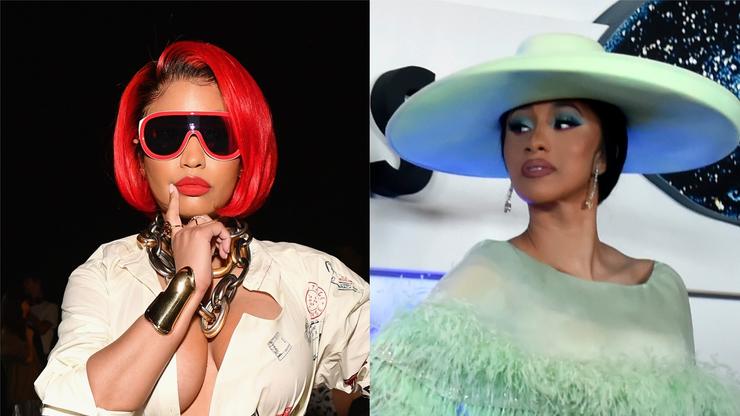Last week, we reported that the T.I.-founded Trap Music Museum in Atlanta would be unveiling an exhibit dedicated to Nicki Minaj and Cardi B. Despite Nicki and Cardi beefing in the past, paintings and other art pieces honoring the two artists’ contributions to hip hop are placed side-by-side in this colorful installation. A dollhouse references Nicki’s 2012 hit, “Beez In The Trap”, and a stripper pole on a checkered platform references the aesthetic of Cardi’s debut album and her previous profession. T.I. spoke on how the lack of women included in the museum since its 2018 inception contributed to the impetus behind this tribute.
“Ever since the Trap Music Museum opened, one of the most common questions posed to us was, ‘Why aren’t there any exhibits showcasing women?’ We were always committed to honoring women who contributed to the culture, but finally found a way to truly elevate and celebrate two of the best,” says T.I., per AllHipHop. “The Nicki Minaj and Cardi B exhibits lift two of the greatest to their rightful place within the Trap Muzik Universe.”
While the exhibit had its grand opening at the Trap Music Museum this week, a glimpse of it was given at a pop-up in Los Angeles in July. T.I. faced some backlash for sanctioning one particular piece: a throne that was painted half pink and half checkered. The obvious symbolism is that Nicki and Cardi share the title of being the “Queen of Rap”. While many argue that this a tired debate that unnecessarily pits women against one another, T.I. received complaints that Cardi’s entrance in the game was too fresh to place her on the same plane as Nicki. He responded to this controversy in a 2019 interview: “Everybody [was like], ‘How could you? [Cardi] hasn’t been rapping long enough! She ain’t put out enough! You’re being disrespectful to Nicki!’ When does celebrating two queens become disrespectful to one? I never understood that. This is an acknowledgment. Both of these young ladies have struggled and overcame obstacles and defied the odds to put themselves in positions to represent [themselves] and the next generation.”








